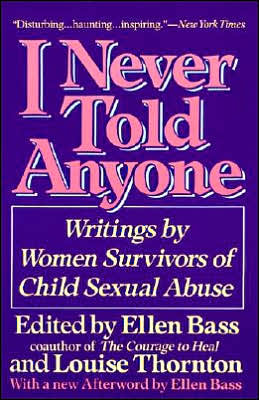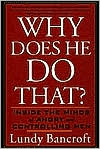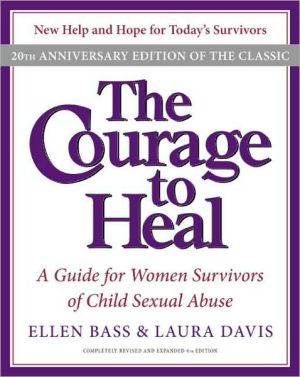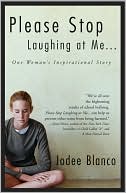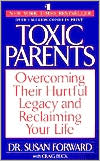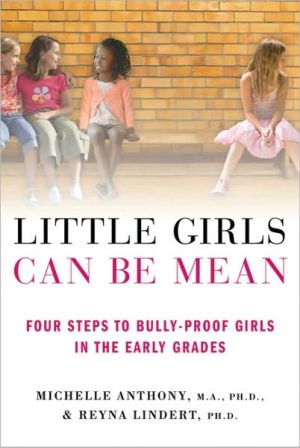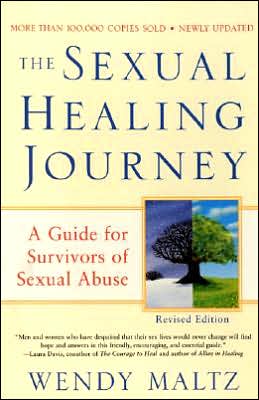I Never Told Anyone: Writings by Women Survivors of Child Sexual Abuse
A reissue of the now-classic anthology (with more than 60,000 copies sold) of deeply moving testimonies by survivors of child sexual abuse—with a new afterword by Ellen Bass, co-author of The Courage to Heal.\ \ \ Here are deeply moving testimonies of survivors of child sexual abuse.\
Search in google:
A reissue of the now-classic anthology (with more than 60,000 copies sold) of deeply moving testimonies by survivors of child sexual abuse—with a new afterword by Ellen Bass, co-author of The Courage to Heal.
Chapter One\ MAGGIE HOYAL\ "Because I could never talk about what had happened to me, it dominated my life. Then, through my writing, I discovered that I have an intellect that is not stupid but unstretched, a heart which can feel more than pain, a body that once again belongs to me."\ Maggie Hoyal was born in Florida on January 15, 1952. Her mother was a registered nurse; her father a member of the local pipe fitters union and an ex pilot in the air force. Her parents' marriage was one of many separations and reconciliations. Maggie's father began molesting her at the age of nine months and continued to do so until she ran away from home at sixteen. "I remember walking away from the room my father rented," she writes, "feeling the most complete freedom of my life."\ For the next five or six years, Maggie repressed all thoughts and feelings about the past. "I did not think at the time that I was running away from memories," she explains. "I had simply put the past out of my mind altogether. At age twenty-two, I remember thinking I had never heard the sound of my own voice above a normal speaking tone. I had never yelled, never screamed, never felt anger or expressed it. I began to wonder why."\ At this point Maggie moved to California and became part of a women's writing workshop, where she found, in her words, "one other person who wanted to listen, and after listening, was angry for me." As she began writing, she learned to respect herself for the first time because she had survived. She also began to regard herself with compassionate humor.\ When she finished "These Are the Things I Remember," shefelt triumphant; it was the first writing she had ever completed. It changed her life. She no longer needed to fail. The story was originally published in Pan Ku, a college literary magazine. "7 would like women to realize that we cannot afford a low selfconcept because it makes us victims, " she states. "We as women do not have to fight our way into a place in this world, nor do we have to beg for one. We are a part of the world to the extent and limit of our own imaginations. Without us, the world is unbalanced and dangerous. "\ These Are the Things I Remember\ I remember the train. The thick metal plate ran even with the level of my chin. My mother's hand pulling me up that first step and the steam blasting from under like a dragon's breath. I sat next to my brother and kept looking across at mother's face, her expression of troubled annoyance. I wondered why she didn't feel it, the excitement of the train.\ "Mama, the train."\ She looked at her watch and said, "Yes, I know the train is always late."\ "But, mama--"\ "Quiet down. When you get used to it, the train won't seem like anything, just a train."\ \ \ \ It was a warm Florida night, but we stood there in our pajamas shivering in a little line like dominoes. Dickie was first because he was the oldest. Daddy had gone to find the stick. The stick was a piece of pinewood twenty-one inches long and two and a half, three inches wide. "Stick" was the only name it ever had.\ I was so scared my teeth chattered when I tried to talk.\ "You think he'll hit us real hard?" I said.\ "Shoot, he can't hit that hard," Dickie said.\ "Only hard enough to kill us," Bobbie put in.\ "Why, he don't hit any harder than a fly shits," Dickie said.\ "Dickie!" I cried, my mouth hanging open.\ Bobbie started to giggle way down in his gut. He was holding his stomach and covering his mouth at the same time, trying not to laugh out loud.\ "No harder than a fly shits!" Bobbie repeated.\ That was all it took. We were gone, laughing till tears came to our eyes. Laughing 'cause we were too scared to do anything else. Laughing just because we knew we shouldn't be. The scareder we got, the harder we laughed.\ Then we heard footsteps coming from the next room. Angry thudding sounds. My father's red face appeared in the doorway and he was swinging Stick at his side.\ "So you think it's funny, do you? We'll just see how funny you think this is. Get over here, Dickie."\ I plugged my fist into my mouth, but I couldn't stop the giggling sound.\ "Pull down your pants and bend over the bed."\ Dickie had stopped laughing, but he didn't look afraid. I heard the smack of the hard board on flesh and went silent. Dickie didn't make a sound. His face had a flat quality now, like he was pressed in upon himself. The only sound was the smack of Stick as it hit. Daddy was getting angrier and I could tell he wouldn't let it go until Dickie cried, and I knew Dickie'd never do that. It seemed like it was going to just go on like that forever. Then I heard the crack of wood as Stick splintered in two pieces. One part hit the wall over our heads with a bang and made me jump. The other side hit the floor.\ Then everything was silent.\ \ \ \ There was a dim light shining just above the sofa on a wooden shelf and mother was reading us stories from the red book. I know it must have been up north on one of our visits to grandma because mama never read when daddy was around, and because of the wood and the winter light as it faded into a later and later hour. My brothers snuggled close to her on either side and I was propped up on the arm. My head moved in and out of the circle of their warmth as each time the page was turned I would be drawn in to see the new and wondrous picture. Sometimes I would close my eyes and listen to the sound of the words, willing them not to stop. It became hard to hold my head up. I edged off the worn sofa arm into a tiny corner next to my brother and lay my head back against its softness.
